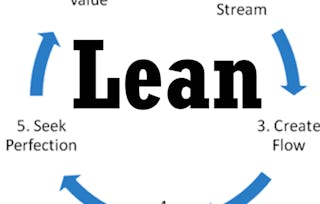Software is quickly becoming integral part of human life as we see more and more automation and technical advancements. Just like we expect car to work all the time and can't afford to break or reboot unexpectedly, software industry needs to continue to learn better way to build software if it were to become integral part of human life.

Software Development Processes and Methodologies

Software Development Processes and Methodologies
This course is part of Software Development Lifecycle Specialization


Instructors: Praveen Mittal
115,364 already enrolled
Included with
2,122 reviews
Skills you'll gain
- Software Engineering
- System Requirements
- Waterfall Methodology
- Software Architecture
- Software Development Methodologies
- Verification And Validation
- User Requirements Documents
- Software Testing
- Agile Software Development
- Application Deployment
- Requirements Analysis
- Agile Methodology
- Software Development Life Cycle
Details to know

Add to your LinkedIn profile
See how employees at top companies are mastering in-demand skills

Build your subject-matter expertise
- Learn new concepts from industry experts
- Gain a foundational understanding of a subject or tool
- Develop job-relevant skills with hands-on projects
- Earn a shareable career certificate

There are 4 modules in this course
In this module and next one, we will learn about various software development processes at a high level to understand what is involved in each of these processes. In this module, we will cover Requirements and Architecture.
What's included
11 videos1 reading9 assignments
In this module, we will learn about processes that are used to implement the software, verify and validate the software, deploy the software and maintain the software.
What's included
12 videos10 assignments
In this module we will learn about various traditional models like waterfall, RUP, Incremental, and Spiral models.
What's included
9 videos4 assignments1 peer review
In this module, we will learn about agile and modern techniques of software development. We will also learn about techniques that helps you learn faster about your market, your users, and your product.
What's included
9 videos2 readings3 assignments1 peer review
Earn a career certificate
Add this credential to your LinkedIn profile, resume, or CV. Share it on social media and in your performance review.
Instructors

Offered by
Explore more from Software Development
 Status: Free Trial
Status: Free TrialAmazon
 Status: Free Trial
Status: Free TrialUniversity of Minnesota
 Status: Free Trial
Status: Free TrialUniversity of Minnesota
 Status: Free Trial
Status: Free TrialLearnQuest
Why people choose Coursera for their career

Felipe M.

Jennifer J.

Larry W.

Chaitanya A.
Learner reviews
- 5 stars
78.37%
- 4 stars
17.23%
- 3 stars
2.11%
- 2 stars
0.84%
- 1 star
1.41%
Showing 3 of 2122
Reviewed on Sep 20, 2020
Be wary of first peer reviewed assignment--requires detailed readings and not all reviewers take the time to read what you wrote or even the rubric.
Reviewed on Apr 10, 2022
I found this course very impressive. Such amazing context is not available even on you tube. The way of presentation is outstanding and the real world examples make it perfect for anyone.
Reviewed on Apr 17, 2020
Very nice course that provides good insight on software development practices and common problems. It provides also some insights on project management, highlighting pros and cons of different models.

Open new doors with Coursera Plus
Unlimited access to 10,000+ world-class courses, hands-on projects, and job-ready certificate programs - all included in your subscription
Advance your career with an online degree
Earn a degree from world-class universities - 100% online
Join over 3,400 global companies that choose Coursera for Business
Upskill your employees to excel in the digital economy
Frequently asked questions
To access the course materials, assignments and to earn a Certificate, you will need to purchase the Certificate experience when you enroll in a course. You can try a Free Trial instead, or apply for Financial Aid. The course may offer 'Full Course, No Certificate' instead. This option lets you see all course materials, submit required assessments, and get a final grade. This also means that you will not be able to purchase a Certificate experience.
When you enroll in the course, you get access to all of the courses in the Specialization, and you earn a certificate when you complete the work. Your electronic Certificate will be added to your Accomplishments page - from there, you can print your Certificate or add it to your LinkedIn profile.
Yes. In select learning programs, you can apply for financial aid or a scholarship if you can’t afford the enrollment fee. If fin aid or scholarship is available for your learning program selection, you’ll find a link to apply on the description page.
More questions
Financial aid available,
¹ Some assignments in this course are AI-graded. For these assignments, your data will be used in accordance with Coursera's Privacy Notice.

